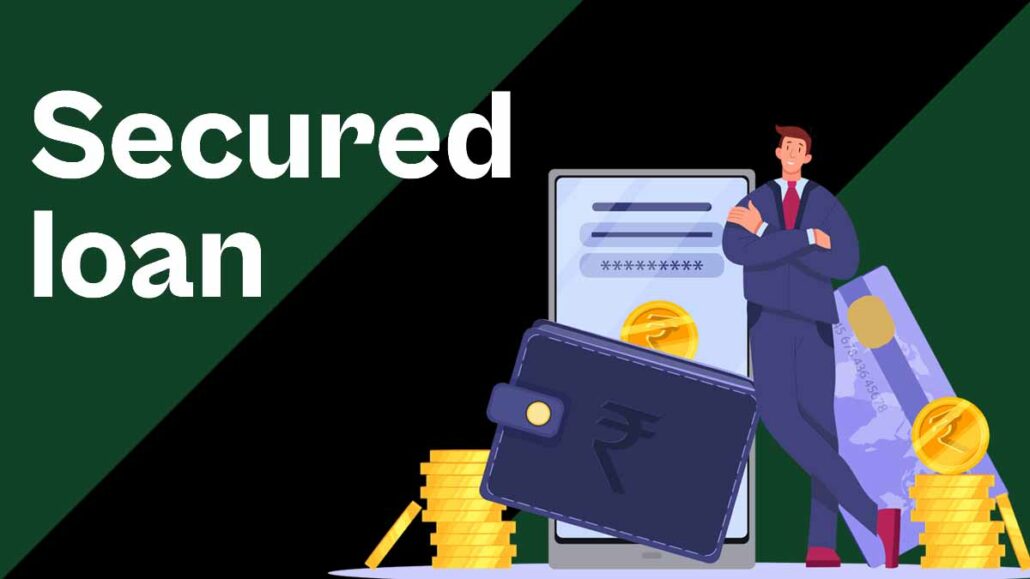Have you ever wondered how to borrow a larger amount of money, or secure a loan with a more favorable interest rate? A secured loan might be the answer you’re looking for. Unlike unsecured loans, which rely solely on your creditworthiness, secured loans involve putting up an asset, like a car or a house, as collateral. This essentially reduces the risk for the lender, as they have the option to seize the collateral and sell it off to recoup their losses if they fail to repay the loan. In exchange for this security, lenders on secured loans often entice borrowers with lower interest rates and potentially longer repayment terms.

Learn about secured loans, how they work, and eligibility requirements. Apply for a secured loan today.
What are Secured Loans?
Secured loans are a type of financing option where you borrow money from a lender and use an asset as collateral. This collateral, which can be a car, house, or other valuable possession, essentially guarantees the loan. If you fail to repay the loan according to the terms, the lender has the right to repossess (take back) the collateral and sell it to recoup their losses.
Secured Loans vs. Unsecured Loans
Here’s a quick comparison to help you decide which loan type suits you best:
| Feature | Secured Loan | Unsecured Loan |
| Collateral | Required | Not Required |
| Interest Rates | Typically Lower | Typically Higher |
| Loan Amounts | Potentially Higher | Typically Lower |
| Qualifying Requirements | Easier to Quality For | More Difficult to Qualify For |
Types of Secured Loans
- Mortgage Loans: Secured by your property, used for purchasing or refinancing a home.
- Auto Loans: Secured by your car, used for purchasing a new or used vehicle.
- Home Equity Loans and Lines of Credit (HELOCs): Secured by the equity in your home, used for various purposes like home improvement or consolidation.
- Title Loans: Secured by the title of your car, typically for smaller loan amounts and shorter terms.
Benefits of Secured Loans
- Lower Interest Rates: Because secured loans offer lenders more security, they typically come with lower interest rates compared to unsecured loans like personal loans.
- Larger Loan Amounts: Secured loans are often available for larger amounts compared to unsecured loans. This is because the collateral mitigates some of the risk for the lender.
- Easier Qualification: Borrowers with lower credit scores may find it easier to qualify for a secured loan compared to an unsecured loan. The collateral helps assure the lender even if your credit history isn’t perfect.
Things to Consider Before Getting a Secured Loan
- Risk of Losing Collateral: If you default on the loan, you risk losing your valuable asset, like your car or house.
- Restrictions on Collateral: The lender might have restrictions on how you can use the collateral while the loan is active.
- Shorter Loan Terms: Secured loans often come with shorter repayment terms compared to unsecured loans.
What Can Be Used as Collateral for a Secured Loan?
The type of collateral accepted depends on the lender, but some common options include:
- Vehicles (Cars, Trucks, Motorcycles)
- Homes (Primary Residence or Second Homes)
- Investment Accounts (CDs, Stocks, Bonds)
- Certificates of Deposit (CDs)
How to Get a Secured Loan
- Shop Around: Compare rates and terms from different lenders, including banks, credit unions, and online lenders.
- Check Your Credit Score: A good credit score can qualify you for better loan terms.
- Gather Documentation: Prepare documents like proof of income, employment verification, and ownership of the collateral.
- Apply for the Loan: Submit a formal application with the required documents to your chosen lender.
- Review and Sign: Carefully review the loan agreement before signing to understand all terms and conditions.
Secured Loans for Bad Credit
Even with bad credit, a secured loan can be a viable option. The collateral provides security for the lender, making them more likely to approve your application. However, expect higher interest rates compared to borrowers with good credit.
Important Considerations Before You Borrow
- Do You Need the Loan? Carefully evaluate your financial situation and ensure a secured loan aligns with your needs and goals.
- Can You Afford the Repayments? Missing payments can lead to repossession and damage your credit score. Be sure you can comfortably afford the monthly payments.
- Alternatives to Secured Loans: Explore unsecured loans or credit counseling services depending on your situation.
FAQs on Secured Loans
What types of assets can be used as collateral for a secured loan?
Common types of collateral include real estate (homes), vehicles (cars, motorcycles), and investment accounts (with restrictions).
How does the collateral affect the interest rate on a secured loan?
The type and value of the collateral can significantly impact the interest rate you receive. Generally, assets with a lower risk of depreciation (like real estate) might qualify for lower interest rates.
What happens if I default on a secured loan?
If you fail to make your loan payments, the lender can initiate a repossession process. This may involve legal action to seize and sell your collateral to recover the outstanding loan amount.
Are secured loans a good option for me?
Secured loans can be a good choice if you need a larger loan amount, have a lower credit score, or want to qualify for a lower interest rate. However, it’s crucial to understand the risks involved, particularly the possibility of losing your collateral if you can’t repay the loan.
Conclusion
Secured loans can be a powerful tool to achieve your financial goals. By understanding the ins and outs, you can leverage them strategically while minimizing risks. Remember, responsible borrowing and smart financial planning are key to a successful secured loan experience.
Check Out

